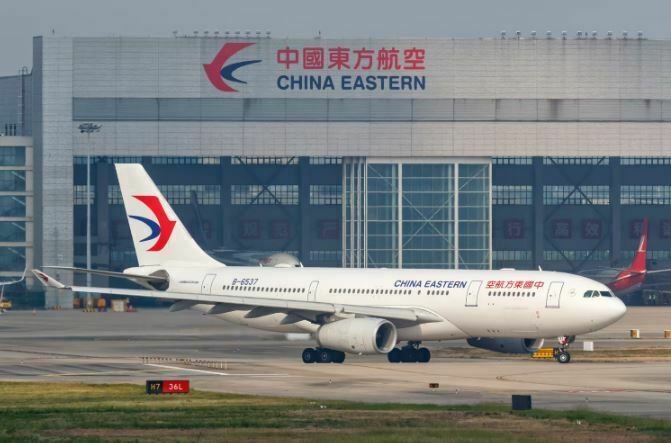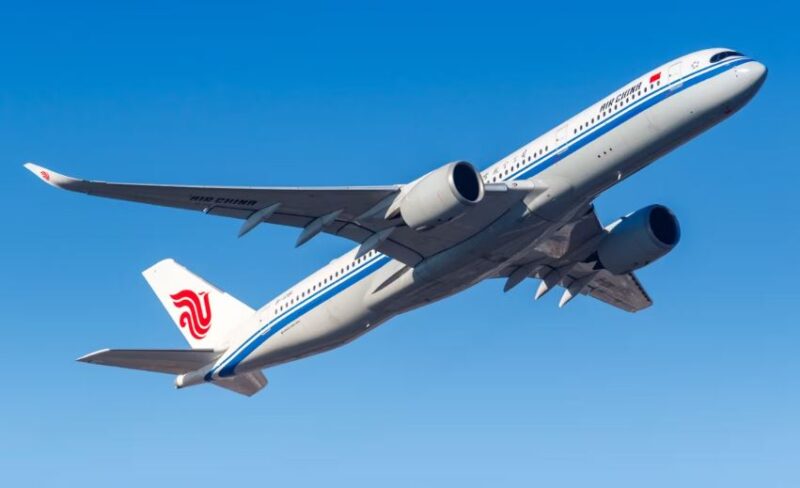Might Chinese airlines set a new sales record for Airbus this year?
French President Emmanuel Macron has scheduled multiple talks with Chinese President Xi Jinping on his visit to China in a few days in an effort to deepen Beijing’s economic and cultural ties. A fresh wave of aircraft orders with multiple Chinese carriers is presently being negotiated, and aircraft manufacturer Airbus is taking advantage of the efforts to normalize relations between Europe and Beijing.

Widebodies this year versus narrowbodies last year
When ties between Washington and Beijing deteriorated last year, a number of Chinese airlines, including several that were major Boeing clients before, switched to Airbus, leading to a sizable order for close to 300 single-aisle aircraft for the European aircraft manufacturer. As the political climate between Washington and Beijing deteriorated this year, it appeared as though history was repeating itself.

The aviation balance may once again tip in favor of Airbus this year with President Macron attempting to win over Beijing. But, the aircraft manufacturer is seeking to get some widebody contracts from Chinese carriers rather than bargaining over narrowbodies. The discussions are more explicitly focused on a multi-billion dollar sale of Airbus A350 aircraft that would sustainably and properly service long-haul trips for Chinese carriers. Airbus A330, Boeing 777, and Boeing 787 aircraft still outnumber Airbus A350 aircraft despite a few airlines now operating the Airbus A350.

Speaking of Airbus A330s, there have also been conversations about the Airbus A330neo, a model that has not yet been introduced by a Chinese airline but may turn out to be the best and most fuel-efficient successor for the older Airbus A330-200s and -300s currently in use by these carriers. enhancing long-haul capabilities for international travel
Despite a three-year pause brought on by the epidemic and its numerous limitations, China is gradually reclaiming its position as the world’s greatest source of international travelers. As Chinese airlines increase their foreign outbound flights to satisfy the lingering passenger demand, the Chinese aviation industry is slowly beginning to recover.
Chinese airlines have also been gradually resuming outbound international flights to China, as was the case recently when national carrier Air China resumed flight operations between London Gatwick Airport and Beijing Capital International Airport. The recovery of air travel in the nation is probably going to reach pre-pandemic levels this year, but Chinese airlines may find it difficult to reach and maintain higher levels due to capacity constraints.
Although the airlines have a sufficient number of widebodies, there is a good chance that avoiding air space constraints will result in higher prices from longer journeys. The airlines would thus be forced to deploy only specified widebody models due to higher prices, which would ultimately result in a shortage of capacity due to the carriers’ constrained supply. Even though some Chinese airlines have Airbus A350 orders that are waiting for delivery, Airbus still hopes to contribute to the ongoing widebody negotiations by offering capacities to even more airlines, as the inclusion of Airbus A350s and A330neos into the airlines’ fleets would help such capacity issues in the long run.
To sum up
The specific airlines involved and quantity amounts are unknown as of this writing because Airbus has not yet commented. But given how successful the partnership between the European aircraft manufacturer and Chinese airlines has been, it’s likely that the widebody purchase will be of a size comparable to the large order from the previous year.
Although the total number of aircraft ordered is typically the main story, it would also be interesting to have a breakdown of the specific aircraft types that the various carriers will ultimately acquire, particularly with relation to the Airbus A330neo.




